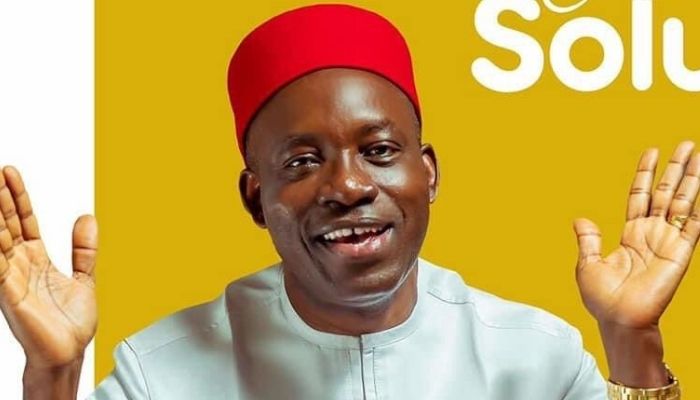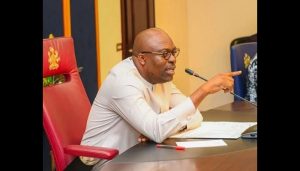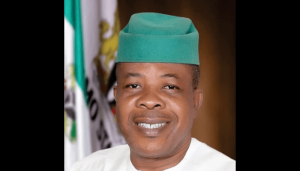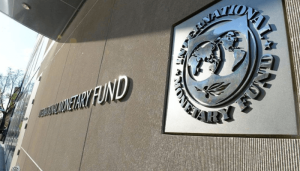Anambra: As technocrat, Soludo must walk his talk

The victory of Chukwuma Soludo of the All Progressive Grand Alliance (APGA) has excited many Nigerians who truly believe there is a need for the country to get the leadership recruitment process right and inject technocrats into the system for a complete turnaround of Nigeria’s governance model.
Soludo, by his victory, has become the second CBN governor to be elected governor of a state.
The first was Clement Nyong Isong, who was a banker and politician, who was governor of the CBN in 1967 during the military regime of General Yakubu Gowon.
Isong was later elected governor of Cross River State (1979–1983) in the Nigerian Second Republic.
Commenting on the quality of the governor-elect, Okey Ikechukwu, executive director, Development Specs Academy, said Soludo was going to bring to Anambra a new paradigm, capacity, and international exposure.
According to him, “You don’t imagine Soludo would get into anything and wants to do badly. No.”
Peter Obi, a former governor of the state, who could possibly be said to have effectively laid the foundation of new Anambra, had advised the people last Friday on the imperative of electing the best person for the job.
He said: “We see how a state that was truly the ‘Light of the Nation’, once referenced as the best in terms of virtually all developmental index, has gone back to its previous notoriety as ‘Home for All’ and is once again referenced for all the bad reasons. If we continue on this trajectory, it will sound the final death knell for our dear state.”
Obi, who was the Vice Presidential candidate of the People’s Democratic Party (PDP), in the 2019 election, tasked the people on the need to vote for a candidate with character, competence; a candidate that would be prudent in the management of resources and development-oriented by expressing willingness to invest in critical areas of education, fighting poverty, improving the health sector, among others.
Read Also: INEC declares Soludo winner
In Nigeria, there is a wide gulf between campaign promises and performance in office. Experience has shown that many politicians and political parties discard their manifestoes as soon as they get into office.
Some even begin to deny ever making some promises. Nigerians have also heard some politicians say that they never made any personal promise but their party, and so they were not under compulsion to fulfill such promises.
It is expected that Soludo will not join that pack and that he will deliver on his 72-page manifesto, which was his mantra as he cruised across the state soliciting for the people’s votes.
He promised to change, develop, boost and transform Anambra State from a dominantly informal commercial state to a formal, productive, and competitive economy.
He said that such feat would be achieved on the back of rapid industrialization, agriculture, commerce, entertainment/leisure and the creative industry, technology and innovation, solid minerals, and oil and gas.
The governor-elect had also planned to work with the Federal Government on state security and provision of adequate logistics and material support to security agencies in the state, support law enforcement agencies in the state with infrastructure, surveillance, and communications tools to enhance their capacity to safeguard lives and property.
He said he would reinforce the capability of the existing security system through employment and equipment of more personnel, training, and retraining of vigilante officers to improve their effectiveness, partner with security agencies towards the eradication of violence, crimes, drug usage, fraud, and all deviant behaviours.
He also promised to ensure more active participation of women at all levels of decision-making and governance at the community, local government, and state government levels.
Part of his manifesto was to strengthen MSME funding programs through the Anambra State Small Business Agency (ASBA) aimed at providing funding and capacity-building assistance for vulnerable groups and women.
The creation of specific programs to empower women-owned businesses and enterprises and also seek partnerships and funding from direct investments to support these businesses were all contained in his document.
He said he would make deliberate efforts in all government programs to ensure gender balance and also to sustain and improve upon the 30 percent minimum representation to a gender-balanced representation across all programs and projects implemented by his administration.
He pledged to pursue reforms, improve skills, reorientation, motivate and leverage technology to optimize the efficiency of service delivery; eliminate waste and corruption.
He hopes to leverage technology to transform the state for good, pledging to transit from manual operations to total e-government in the medium term.
It is also in his plans to deploy a digitally-enabled land administration process with a view to achieving land transfer of title within 72 hours; complete and operationalize the state’s integrated financial management system; review, amend, and operationalize the fiscal responsibility law for greater transparency and sustainability of the state’s finance; as well as continue and strengthen accountability initiatives such as publishing state accounts regularly.
On his plan to carry along the people at the grassroots, Soludo said he would empower the community governments to deliver services to the people, including through matching grants schemes; and review and reform the framework for a succession plan for community leaderships such as Igwes, presidents-general of town unions, etc, to ensure sustainability and continuity in a seamless manner.
Tackling floods which have become a menace in the state is also on his priority list.
According to him, his administration will open and clear drainages and flood channels regularly to eliminate the annual flooding of roads, streets, communities and also to ensure zero tolerance for waste on the street, with the government reviewing and strengthening existing legal and regulatory frameworks and collaborating with capable private operators, local governments, and communities for the efficient and timely disposal of waste across the entire state.
Advising Soludo to walk the talk, Alex Madu, a development banker, said: “A lot is expected of Prof. Soludo. He must bear in mind that much is expected of him. All eyes are on him. He is that magic worker that the Anambra people have been waiting for. The world is also watching to see Soludo break the stereotype and the appellation of bad leaders.”









